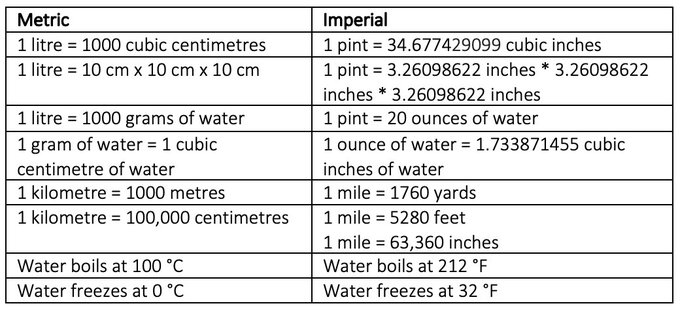The UK Government's Proposal
It seemed to me that the proposal to mandate, or even just permit the removal of metric measures would result in manufacturers making it harder for shoppers to detect and thereby avoid buying smaller, poorer-value, pack sizes.
I therefore checked Bing, and found that the vast majority products shown had simple, easily comparable metric sizes on the packs. A few however, such as the examples on the right, had dual labeling, which rendered the weight harder to read and understand.
My response
I therefore prepared the answers to the Government's questions which can be seen at the bottom of this page. Anybody is welcome to copy, edit, and use any of this text, and paste it into the "Respond online" section at... Review of units of measurement for consumer transactions.
Alternatively, people are welcome to email ... My completed response form, to beis.co.uk. I am happy for anybody to submit it as it is, or edited to correspond to their own views.
Any submission should be made before 11pm on 26 August 2022
.People may also want to consider signing the parliamentary petition against imperial-only measurements.
Importance of responding
Some may think Units of Measurements are a distraction from more serious economic and political problems. However, I think that allowing manufacturers to disguise price increases, (such as the 17% price-hike resulting from the replacement of 100g packs by 3oz ones), is likely to increase UK inflation, which not only reduces living standards, but also then makes it harder to resolve the current industrial disputes.
Others may think that the government is going to go ahead regardless of the response. However, if it becomes clear that the change would be a vote looser, or if the response makes it clear to a sufficient number of conservative MPs that it is not a good idea, then I trust that the proposal would be dropped.
If the government insists on going ahead in spite of this, then perhaps the reason has more to do with food industry donations to conservative funds



